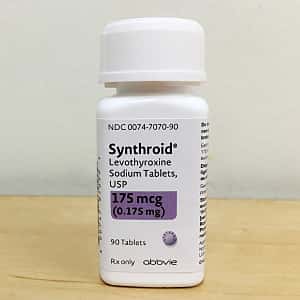
Generic medicines are supposed to save you money, but not all generic drugs are interchangeable. Many people are aware that generic levothyroxine and the brand name Synthroid can’t always be freely switched. For more than a decade, doctors have been debating the pros and cons of prescribing generic levothyroxine and allowing the pharmacy to fill the prescription with any available generic formulation (Thyroid, Dec. 2003).
Why Don’t Drugstores Carry Brand Name Synthroid?
Q. My doctor determined by blood tests that my thyroid levels remain stable only when I take the original drug, Synthroid. Whenever I go to a new pharmacy, they always say that the only thyroid drug they can get is generic levothyroxine. They always say Synthroid can be special-ordered but it will take time to get it.
Brand name Synthroid is always a lot more expensive than the generic pill and not covered by my insurance. Why do they make it so hard to get the drug I need? Also, why do they charge so much for it?
How Much Does Synthroid Cost?
A. Synthroid is a long-standing brand name version of levothyroxine. You are right that it is more expensive than the generic medication. Synthroid runs between $45 and $67 for 30 pills. The generic version costs between $12 and $16 for the same 30 tablets. That’s why many insurance companies only want to pay for generic levothyroxine.
We discovered that brand name Synthroid is substantially less expensive if you purchase it from Canada. A three-month supply costs between $25 and $60, less than a 30-day bottle from the U.S. You can learn more about reputable Canadian online drugstores in our eGuide to Saving Money on Medicines.
Learn More:
Our eGuide to Thyroid Hormones may also help you understand the tests your doctor has used to determine how well your thyroid medicine is working. In the eGuide, we also discuss the pros and cons of treating your thyroid condition with levothyroxine (T4) only or including triiodothyronine (T3) in the medication.

